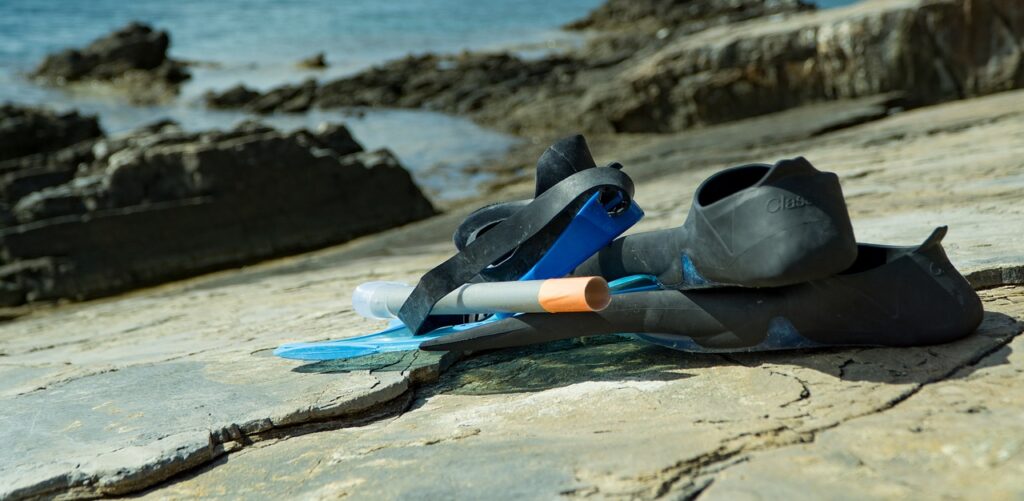

With dedication and focus, beginner freedivers can learn essential principles and be making their first shallow dives in the water within hours or days. Reaching higher levels of competence and performance can take many months or years, especially if you’re aiming to compete at elite level. There are no short-cuts to training your body and mind to work efficiently under low oxygen and high water pressure conditions.
If they have already learned the principles and practice of key freediving techniques including apnea (breath-holding) and ear pressure equalization, beginner freedivers could be making their first shallow dives within hours. Completing a beginner freediver course could see someone diving to depths of 10-15 meters in days or weeks. Becoming a competitive freediver could take months or years of training and practice.
The True Story Book of Freediving Champion Audrey Mestre and the Story of Her Death
View on Amazon: The Last Attempt (Opens new tab)


Top rated read
If you’re thinking of taking up freediving, you might be wondering how long it will take you to learn. Our article tells you more about training to freedive and how you can acquire the knowledge and skills you will need.
Can you teach yourself to freedive?
While it may be safest and most sensible for beginners to have an instructor supervising their early dives, it is possible to teach yourself the theory of freediving from books or online courses. With or without a formal freediving course, learning important safety and physiological principles is not optional.
You must become competent in breathing and apnea (breath-hold) exercises. It is also essential to learn to equalize the air pressure in your ears at depth, as well as how to keep your mind focused and calm while holding your breath underwater.
One of the first safety rules to learn is that it is dangerous to freedive alone. Freedivers should always dive with a buddy who can watch for signs of difficulty in the water (e.g. hypoxic blackout) and give quick assistance. If you choose to learn freediving without an instructor, you should find an experienced freediving buddy to accompany you while diving. To learn more, check out our full article on whether you can teach yourself to freedive (opens new tab).
Is it hard to learn free diving?
Freediving can be hard work, especially in the early days before training and practice have allowed the body to adapt to functioning at depth underwater while in apnea conditions. Even with some experience, freediving remains challenging, placing unique stresses on the whole body and mind, especially the cardiopulmonary system.
Some people might also regard freediving as hard because there are no shortcuts to the training and practice required for high performance and safety. For more details, check out our full article; is freediving hard (opens new tab).
How do you train for freediving?
Freediving is best supported with a broad training program which includes static and dynamic apnea (in and out of the water) along with strength exercises, cardio work and practices such as yoga or pilates that can help to focus and calm the mind. For example:
Dry Static Apnea
You can practice dry static apnea exercises using carbon dioxide and oxygen training tables to guide your breathing and breath-holds.
Wet Static Apnea
Dry static apnea training cannot replicate the experience of diving underwater and is not a substitute for apnea training in the water where the body is under higher pressure and the mammalian dive reflex (MDR) is activated.
Regular practice of wet and dry apnea trains your body to be more efficient in its oxygen use and more tolerant of high carbon dioxide levels in the blood. Breath-hold training also builds psychological tolerance of these conditions, reducing the risk of dangerous underwater panic.
Dynamic Apnea
Dynamic apnea is the practice of movement on land or in water while holding your breath. As well as training your body to function more efficiently with low blood oxygen levels, dynamic apnea also accustoms body and mind to the sensations of arm and leg muscles working anaerobically.
Cardio
Cardiovascular exercise (cardio) can enhance heart and lung function and build muscle strength in legs, arms and other body parts. Jogging, hiking, HIIT or other cardio sport can all be helpful in a freediver’s regular training program.
Concentration and focus
Panicking in the water would be extremely dangerous and freedivers also benefit from mental as well as physical training. Learning to remain calm and focused under high water pressures makes freediving safer and more enjoyable. Yoga, pilates and meditation practices may all be a useful addition to freediver training.
Can I get freediving lessons?
Freediving lessons are widely available in many countries around the world, often where there is open water suitable for diving, or in suitable swimming pools. Some schools or instructors also offer online or Skype teaching in preparation for practical teaching or instead of a real-life course.
You may be able to find a suitable course or instructor through a professional organization such as AIDA (the International Association for the Development of Apnea), CMAS (the World Underwater Federation) or PADI (the Professional Association of Diving Instructors).
How long do freedivers hold their breath?
Non-freedivers can often only hold their breath for 30-60 seconds. With regular apnea and diving practice, freedivers can boost their lung capacity and function, extending the time they can hold their breath underwater to several minutes.
Highly experienced and/or competitive freedivers can hold their breath for up to nine or ten minutes depending on the discipline. The longest breath-hold in the Guinness Book of Records, was 24 minutes 37.36 seconds, set in 2021 by Budimir Šobat from Croatia.
